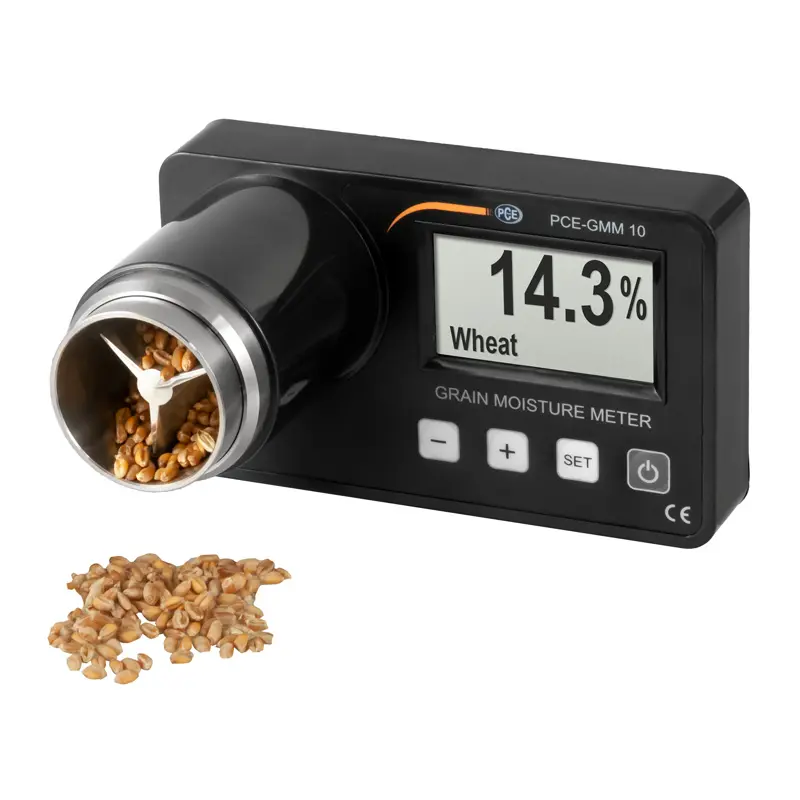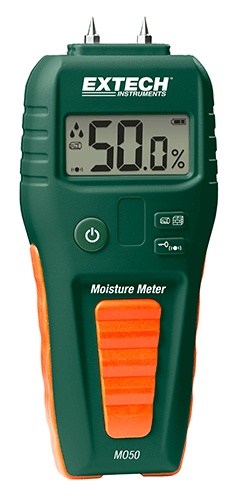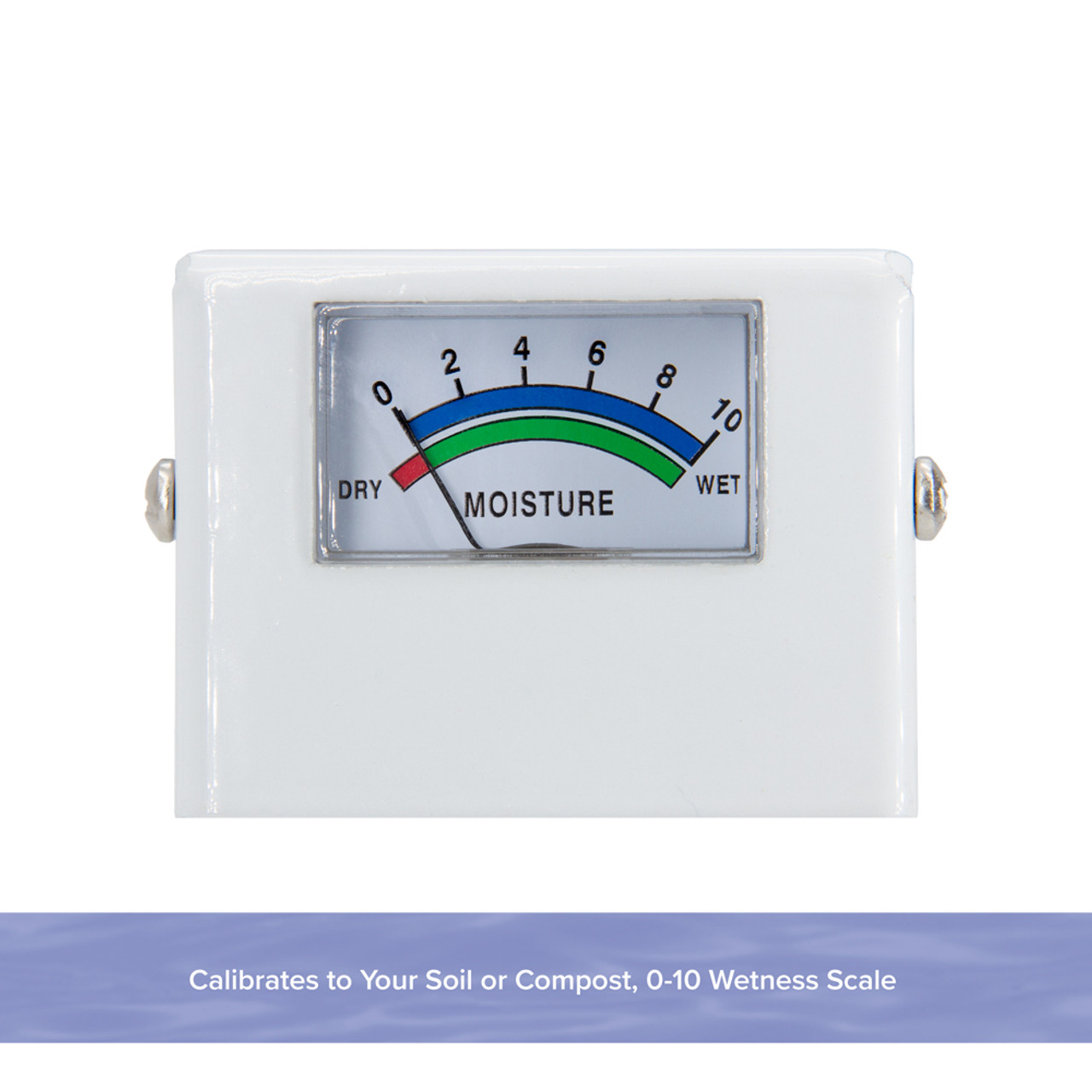The Scientific Research Behind Moisture Meters: Just How They Function and Why They're Vital
The Scientific Research Behind Moisture Meters: Just How They Function and Why They're Vital
Blog Article
The Ultimate Overview to Moisture Meters: A Comprehensive Review and Just How They Can Conserve You Cash
In the realm of building upkeep, building and construction, and different markets, the significance of precisely determining moisture degrees can not be overemphasized. Dampness meters function as vital devices in detecting and keeping an eye on moisture material in products, helping in protecting against costly problems and making sure the top quality of items. Recognizing the subtleties of various kinds of dampness meters, their applications, and the potential cost-saving advantages they use can be a game-changer for organizations and specialists alike. Discovering just how these tools can not just streamline procedures however additionally contribute to financial savings is a journey worth beginning on.
Types of Moisture Meters
Numerous types of dampness meters are readily available for different applications in various sectors. One common kind is the pin-type moisture meter, which determines the electric resistance between two pins inserted into a material. This kind is ideal for timber, drywall, and other building products. Pinless dampness meters, on the various other hand, use electromagnetic sensor plates to scan a larger area without creating damages to the product's surface area. These meters are excellent for promptly assessing wetness levels in big areas such as walls and floors.
Infrared dampness meters measure the thermal residential properties of a product to identify its wetness content non-invasively, making them helpful for applications where pin or pinless meters might not be suitable. Comprehending the various types of wetness meters available can help sectors select the most appropriate device for their particular dampness measurement requirements.

Advantages of Using Moisture Meters

Moreover, using dampness meters can bring about increased energy efficiency. By recognizing areas with high wetness levels, such as leaks or inadequate insulation, changes can be made to boost energy conservation and reduce utility costs. In agricultural setups, dampness meters play a crucial role in maximizing crop returns by allowing farmers to keep track of dirt wetness degrees and make notified watering decisions. In general, the benefits of making use of moisture meters span across various sectors, providing economical options and promoting much better quality assurance methods.
How to Select the Right Moisture Meter
Choosing the proper wetness meter includes taking into consideration crucial aspects such as material compatibility, measurement array, and calibration precision. When choosing a moisture meter, it's vital to make sure that the meter is ideal for the particular material you will be screening. Different materials have differing electrical homes that can affect wetness readings, so choosing a meter created for your material is crucial for exact results. In addition, think about the dimension variety of the wetness meter. Ensure that the meter can discover dampness degrees within the variety needed for your applications. Calibration precision is one more essential aspect to remember (Moisture Meter). Go with a wetness meter with trustworthy calibration to guarantee constant and precise analyses. Some meters may my review here call for routine calibration modifications, so recognizing the calibration process is necessary. By carefully reviewing these factors, you can select a moisture meter that satisfies your needs and provides exact moisture dimensions for your tasks.
Proper Strategies for Moisture Meter Usage
To make sure accurate moisture analyses and make the most of the efficiency of a moisture meter, using correct strategies is crucial. When making use of a pin-type dampness meter, place the pins or probes right into the product being examined till they make complete call. By following these appropriate methods, customers can count on their dampness meter to supply reliable dampness degrees, aiding in stopping expensive damages or ensuring top quality in numerous applications.

Price Cost Savings Via Moisture Meter Applications
Exactly how can the tactical application of dampness meters lead to considerable cost savings across different sectors? In the farming industry, wetness meters aid in identifying the optimum time for harvesting plants, avoiding excess or over-drying moisture that can influence the final item's high quality.

Moreover, in the food processing market, dampness meters are important for monitoring product quality and guaranteeing conformity with safety policies. By precisely determining moisture content in foodstuff, makers can protect against spoilage, preserve freshness, and minimize waste, leading to significant price savings. Generally, the critical application of wetness meters is a valuable financial investment that can lead to significant expense decreases and enhanced performance across various markets.
Final Thought
Finally, wetness meters are valuable devices for gauging and detecting wetness levels in different materials. By making use of the learn the facts here now right moisture meter and complying with appropriate methods, individuals can successfully stop expensive damages caused by excess moisture. Buying a high quality wetness meter can bring about considerable cost financial savings over time by read the full info here determining potential problems at an early stage and making it possible for punctual removal. Eventually, moisture meters are essential tools for maintaining the stability and longevity of structures and materials.
Dampness meters offer as important tools in finding and keeping track of moisture web content in materials, helping in protecting against expensive damages and making sure the top quality of products. Infrared wetness meters determine the thermal properties of a material to establish its moisture content non-invasively, making them useful for applications where pin or pinless meters might not be ideal.Dampness meters supply vital advantages in properly examining and checking dampness degrees in varied products and atmospheres. In agricultural settings, wetness meters play a vital duty in maximizing plant yields by making it possible for farmers to check soil wetness degrees and make informed watering decisions.In conclusion, dampness meters are useful devices for gauging and identifying moisture levels in different materials.
Report this page